How Aging Affects Skin
The way skin ages depends on a variety of factors, including: hereditary, diet, lifestyle, and personal habits. Some aging influences are out of our control; others we can alter.
As we grow older, visible lines start to appear on the face. Losing some of the sterotypical “youthful glow” is expected, but not inevitable. Over the years, our skin becomes thinner and, often, drier. Geneology plays a major role in how skin changes. This concept is known as “intrinsic aging” (meaning that our genes program how we age and we must take extra steps to reverse that process).
Extrinsic aging (or “photoaging”) is caused by the environment in which we live and lifestyle choices (e.g. air pollution, smoking). That said, skin health largely deteriorates as a result of sun exposure. Because we can minimize our exposure to factors that cause extrinsic aging, it’s important to take precautions (like using sunscreen with UV protection, wearing hats and sunglasses, and reducing tobacco intake).
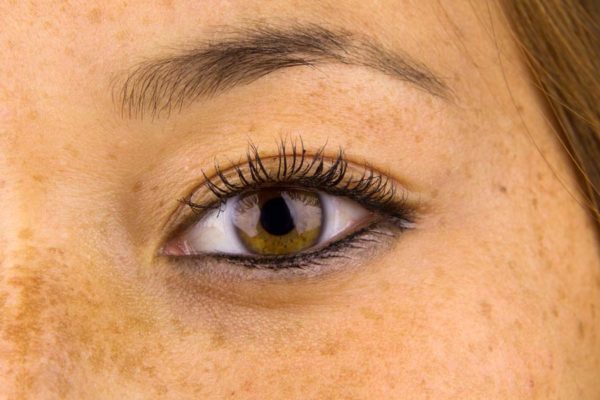
Prolonged sun exposure can damage your skin
Factors that damage skin:
Normal Aging
Throughout the years, our skin undergoes many changes. Some skin starts losing its resilience when a person is in their 20s or 30s. Fine lines and sunspots could also start to develop during this time. Although not all people in their 40s manifest drooping skin, some of us may notice a loss of elasticity and tightness. In our 50s, we may begin to witness sagging skin, drooping eyelids, and sagging eyebrows. Natural aging continues in our 60s and 70s with veins becoming more visible underneath thinner skin.
Photoaging
As mentioned previously, this process involves the premature aging of the skin, largely caused by prolonged (and repeated) exposure to ultraviolet radiation (UV). Unlike natural skin aging, photoaging changes the normal structure of the skin. The effects of photoaging are most visible on the face, neck, and backs of the hands.
Subcutaneous Changes
Various age-related changes can take place as the fat layer beneath skin starts to thin, nose cartilage diminishes, and bone loss around the mouth occurs. All these changes can result in a facial structure that appears sunken, a drooping nose tip, or a puckered mouth.
However, most of these changes can be diminished with various anti-aging treatments.
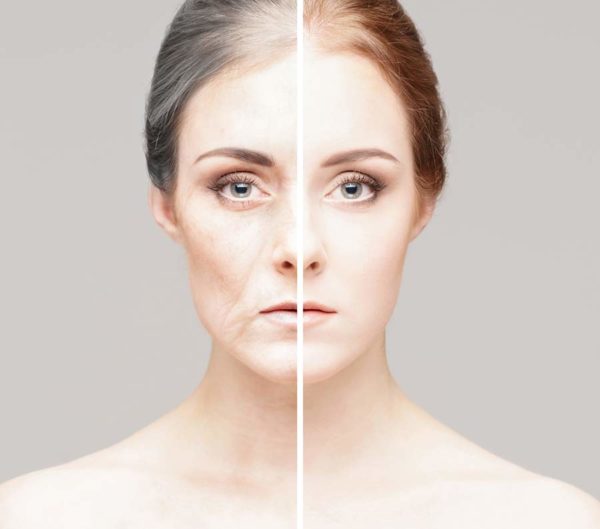
The aging process can change our skin in many ways.
Seven signs of aging
Youthful, glowing skin can be maintained well into our advanced years. Understanding and recognizing the signs of aging is an important step toward creating a plan for renewing healthy, radiant skin.
Be aware of these seven signs of aging skin:
Age Spots / Hyperpigmentation
As we age, the melanocytes (pigment cells) in skin start to multiply more quickly. They cluster and form “age spots,” freckles, and other dark patches. Age spots and hyperpigmentation are most likely to appear in parts of the body that are frequently exposed to the sun. They can also be caused by skin injuries, inflammation, and acne.
Sagging Skin
The production of elastin and collagen in our skin reduces over time, making the surface less firm and more likely to sag. Gravity (and weight changes in the body) can reduce skin tautness.
Dull Skin Tone
Buildup of dead skin cells on the face can make skin appear dull. Skin cell renewal rate decreases about 7% every ten years. With fewer new skin cells to fight dull skin tone and restore its natural glow, aging becomes more apparent.
Fine Lines and Wrinkles
As the levels of moisture, elastin, and collagen in skin diminish, wrinkles begin to appear. Fine lines may start to form around the eyes and mouth. Smoking and excessive exposure to the sun’s harmful UV rays can also speed up the formation and deepening of lines and wrinkles.
Dry Skin
The natural moisture in our skin reduces as we grow older, often causing the skin’s outer layer to dry. Dry skin can be uncomfortable and lines may become more apparent.
Thin Skin
Aging slows the rate of cell production in the lower layer of the epidermis. This results in the thinning of both epidermis and dermis, making skin more prone to wrinkles.
Skin Bruises
Over time, blood vessel walls weaken and become thinner, them vulnerable to breakage and bruising.
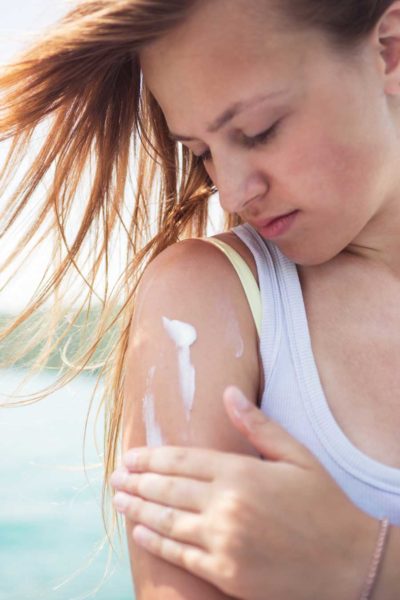
Sunscreen can protect skin from harmful UV / UVB rays.
Anti-aging skin care tips
Wrinkle creams, eye serums, and other anti-aging skin care products slow the effects of aging and sun-induced skin damage. A truly effective anti-aging skin care plan can:
- Clear uneven complexion
- Reduce the appearance of fine lines and wrinkles
- Retain and restore youthful glow and firmness of skin
- Brighten complexion
- Prevent “scaly” skin
- Reduce the risk of skin cancer
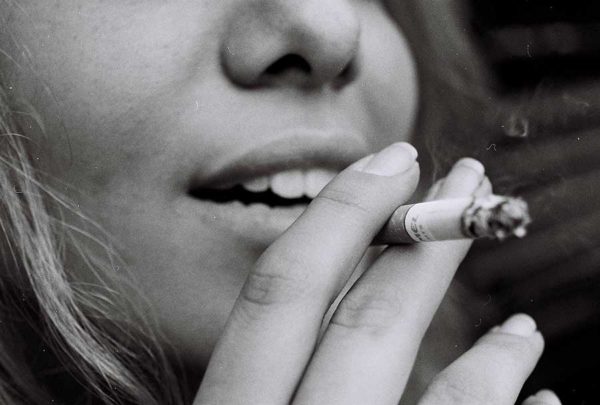
Smoking contributes to an aging appearance
Utilize healthy skin care habits to promote anti-aging properties:
Protect skin from the sun
Sun protection is the foundation of an anti-aging skin care plan. To protect your skin from the sun, use broad-spectrum UVA/UVB protection or sunscreen with an SPF 30 or higher. Even if you are running errands while driving in your car, cover up with light, long sleeved clothing, wear sunblock, and/or limit your outdoor exposure.
Apply moisturizer daily
Experts agree: daily application of facial moisturizer, safe body lotions, and lip balm replenishes natural oils to give skin a more youthful appearance.
Eat a healthy, well-balanced diet
Eating plenty of fresh fruit and vegetables, lean proteins, and healthy fats is a natural way to keep skin healthy and prevent premature aging. Avoid refined carbohydrates and sugary foods because they can speed the aging process.
Stop smoking
Smoking is a significant factor in premature skin aging. It contains toxins that can produce premature lines and wrinkles, dull, sallow complexion, and leathery skin.
Avoid Tanning
Tanning in the sun, a tanning bed or other indoor equipment can expose you to harmful UV rays.
Consume alcoholic beverages in moderation
Drinking alcohol can cause skin dehydration. It damages the skin and can make a person appear older.
Clean properly
Wash your face with warm water and a mild facial cleanser instead of harsh soap products. Scrubbing the skin can lead to irritation. Gently clean your face twice a day to remove pollution, oil, makeup, and other substances.
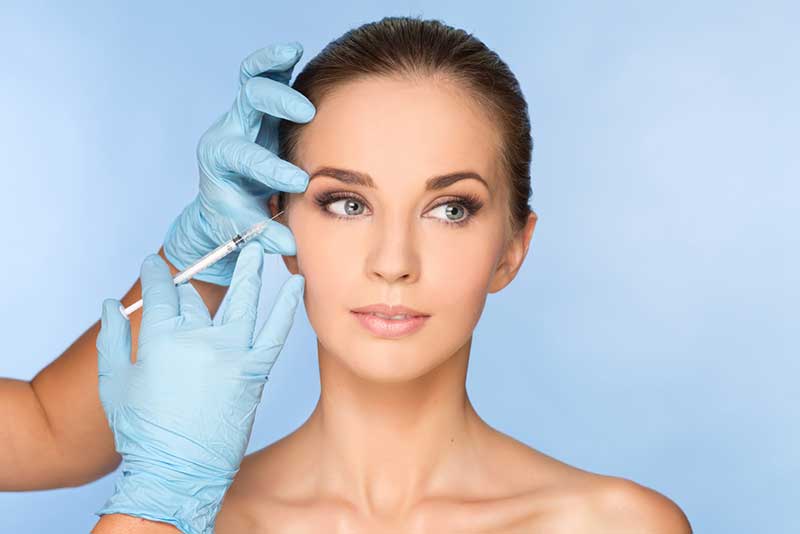
Botox and dermal fillers help reduce fine lines and wrinkles.
Even in our 30s and 40s it is not too early to improve upon our skincare regimen. With cutting-edge treatments and minimally invasive procedures, you can eliminate stubborn fine lines and wrinkles using Botox® and Dermal Fillers.
Bring back a relaxed look and younger-looking skin: Clarity Medspa & Laser offers a wide array of products and services for skin rejuvenation in Toronto. Effectively smooth wrinkles, improve skin complexion, and tighten loose skin. Call (416) 960-2222.

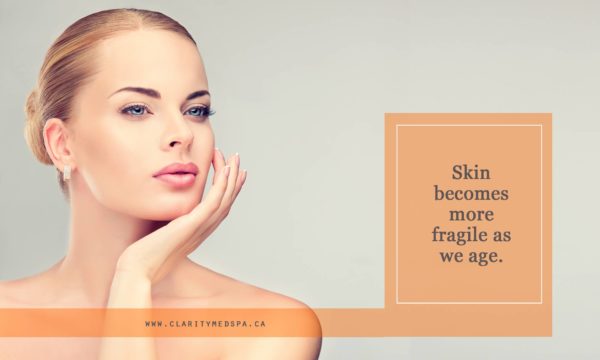
 Linkedin
Linkedin Facebook
Facebook  Instagram
Instagram  Twitter
Twitter  Youtube
Youtube